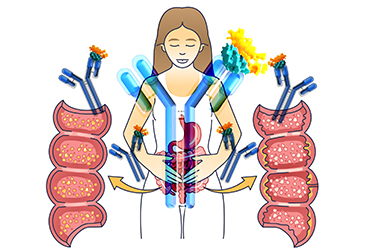PHILADELPHIA—The Phase 3 QUASAR study demonstrated efficacy of guselkumab as a maintenance therapy for patients with ulcerative colitis who initially did not respond to intravenous guselkumab induction therapy, according to results presented at ACG 2024.

The majority of these 123 patients had severe disease at the start of induction therapy (modified Mayo score of 7-9, 75%; Mayo endoscopy subscore of 3, 77%), and most had failed prior advanced treatments (inadequate response/intolerance to biologic or Janus kinase inhibitor, 59%).
When evaluated at week 44 of the maintenance phase, 67.5% and 30.1% of patients achieved the end points of clinical response maintenance and clinical remission, respectively. In addition, symptomatic remission generally was maintained, with a similar proportion of patients with symptomatic remission at the start (58.5%) and week 44 (56.9%) of maintenance therapy.
The investigators noted that the safety of guselkumab was as expected, based on use in its currently approved indications, with “no new safety concerns … identified” in this study. In total, 5.7% of maintenance patients experienced serious adverse events, 1.6% experienced serious infections, and there were no deaths.
—Natasha Albaneze, MPH
{RELATED-HORIZONTAL}
